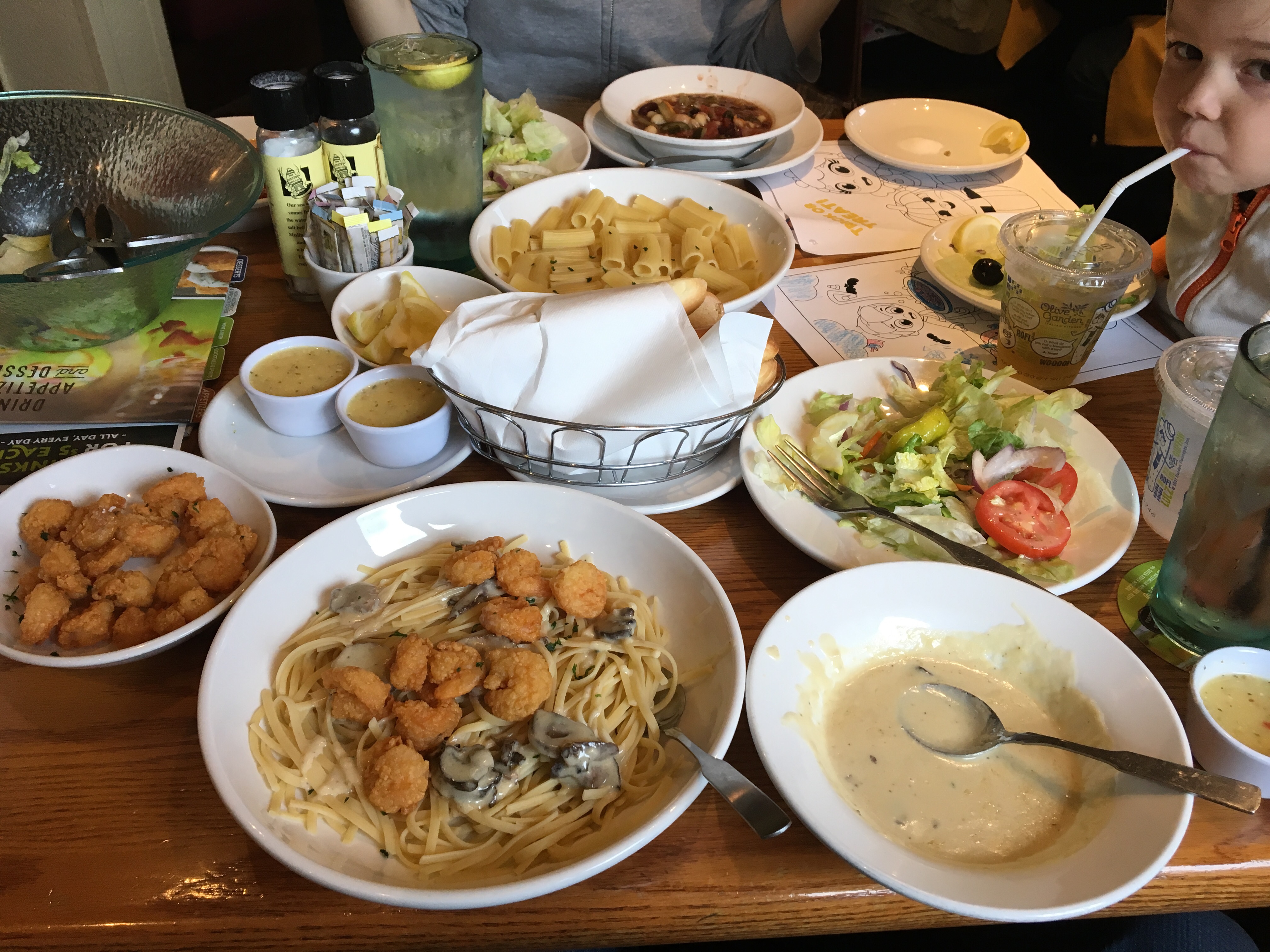Saturday for a late lunch we thought we’d drop in to The Olive Garden, just for a change of pace.
It was busy as expected, and it’s the kind of time when you feel a little guilty coming at all when there’s so many paying customers around. But a pasta pass is a pasta pass, so we obeyed the call of nature.
Most of the time we go and do the normal dining-out dance of “let’s look at the menu while we wait so they think we’ll order off it,” and “we’ll see how much the server’s face falls when she realizes that we could literally be sitting at this table eating for the next eight hours.”
This time, though, the game was curtailed. I typically have my pass out on the table right away and get ready to give my spiel about how we’re sorry, it’s a pain but we’ve got these passes (shrugging). I don’t like assaulting people with them, especially because they’re probably realizing they might not get a tip from us, as only the stingiest people pursue passes like this (we do always tip, for the record). But this time, James–not the little one, but the big one, our server–noticed the pass right off and immediately took our orders from it. The speed with which he recognized them and understood their meaning took me off guard, as the nationwide training program about the pasta passes seems to never have existed for most servers.
I assumed he was pissed about it because he sped off to get our waters (I am cheap). But in about ten minutes this was our spread:

Not too shabby for paying no dollars.
I asked for the salad with no dressing and no croutons, as per Chrissi’s orders. Usually that means no dressing, but this guy thought maybe some of us still wanted it, so he brought three little dishes of it! Which makes sense, sort of, if we each had some preferred amount, but it was great for me at least because I still do like dressing.
Likewise, despite us only ordering waters, he came back with a plate of lemon wedges. Okay, nice gesture, but not insane, yet you don’t expect the little extras when they’re clearly very busy and he’s literally running back to us with stuff. It was good he was coming back to our table every other minute though, because we had to keep asking for things–the host had forgotten the silverware, and we needed the wine glasses taken and all that since the three of us were already filling up this tiny table. James insisted on water when asked if he wanted juice (he does this, we find it funny), but other James didn’t take that for an answer and brought him some apple juice, too, so that was kind. Little James also didn’t really want anything much, but Big James brought him a cup of grapes, anyway, also on the house. When I ordered shrimp on my pasta, he offered me a giant bowl on the side, Shrimp Mountain.
Extra plates, sides, dishes, soup bowls. The kind of thing you might get once in a while from a server, but never all this stuff in one go. For once, I was starting to feel like a real VIP with this card. For once, I was starting to believe that when I was there, I was sort of special.
Then Old James runs back, out of the blue, to ask how we’re doing. I enthused that things were really coming together. He nods and apologizes, saying he’s sorry he’s so pressed today, but it’s because he’s got nine old people parked at some faraway table taking eons to work through. Now, I like this, because Old James is no winging cherub himself: it helps confirm what I feel, that anybody older than us is ancient, and anyone younger is an infant.
“They got me sweating,” he says, grinning, “like a Hebrew slave!”
At that, I had to laugh, because I didn’t expect him to say anything like that. I laughed out of whiteness. But he smiled, so I guess that made it okay.
We refused refills and to take anything home, because all this felt like enough to foist on him for one meal. We left a good tip. Sir James brought us a to-go box full of Andes mints as a going-away present for Squire James.
Honestly, this was about the first time this place did feel like family.
Item 1: linguine, mushroom alfredo, battered shrimp
Breadsticks: 2
Weight: 170 (oof)
Family: 1
